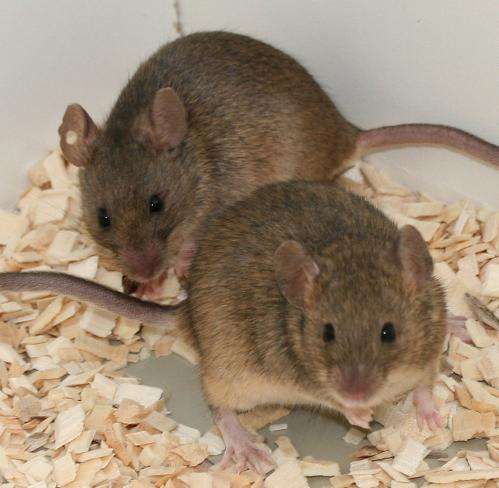The more the merrier: Promiscuity in mice is a matter of free choice

(Phys.org) —In many species, females frequently mate with more than one male. Researchers at the University of Veterinary Medicine in Vienna (Vetmeduni Vienna) aimed to find out why. In experiments on wild house mice, they discovered that females mate with multiple males when they have the opportunity to choose their mates freely. Sexual coercion by males could be ruled out as a factor. The results were published in the journal Behavioral Ecology and Sociobiology.
We know from earlier studies that mice can derive genetic benefits when females mate with multiple males, but until recently, the conditions under which females will voluntarily mate with multiple males were not clear. Kerstin Thonhauser and her colleagues from the Konrad Lorenz Institute of Ethology of the Vetmeduni Vienna conducted a series of experiments in which female wild-derived house mice (Mus musculus) could mate freely with one or two males while not in danger of sexual coercion by a male. The results provide evidence for the infanticide avoidance explanation. Males that have a chance of reproducing with a female are unlikely to kill her young. Virgin males are known to be more likely to kill their offspring, so females tend to mate with multiple virgin males to reduce the danger of infanticide. When exposed to more experienced males, however, less promiscuity was observed. It is uncertain how the females can tell whether a male is experienced or not, but it seems likely that they can detect differences in the males´ scent markings.
Scent marking as a quality indicator
The scientists discovered that females were more likely to mate with multiple males when they produced very similar levels of scent markings. Females mate with a single male when they are able to detect a significant difference in the males' scent. Thus it appears that another factor which influences females' mating decisions is whether they can perceive a difference in the quality of the males.
Correlation between paternity and litter size
Litters sired by more than one male were larger than single-sired litters, however only when there was intense competition among males. "Our results shed some new light on questions about the sexual behaviour of mice, but we still don´t have all the answers", says lead author Kerstin Thonhauser. "We need further studies to understand why litters are larger when there is intense competition between males. Another interesting question that has remained unresolved so far is how multiple paternity affects the fitness of the young."
More information: Thonhauser, K. et al. Why do female mice mate with multiple males? Behavioral Ecology and Sociobiology, dx.doi.org/10.1007/s00265-013-1604-8
Journal information: Behavioral Ecology and Sociobiology
Provided by University of Veterinary Medicine -- Vienna


















